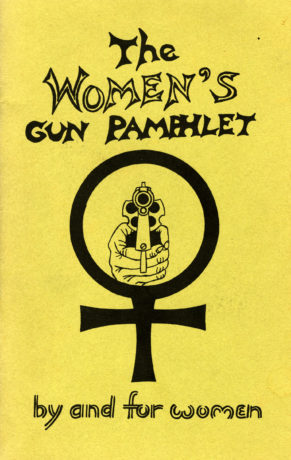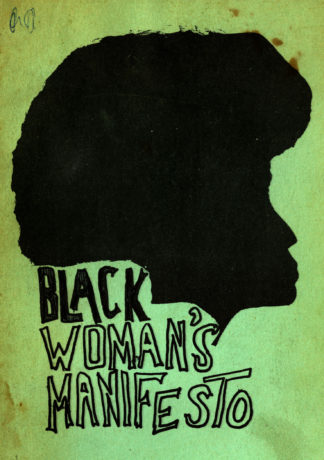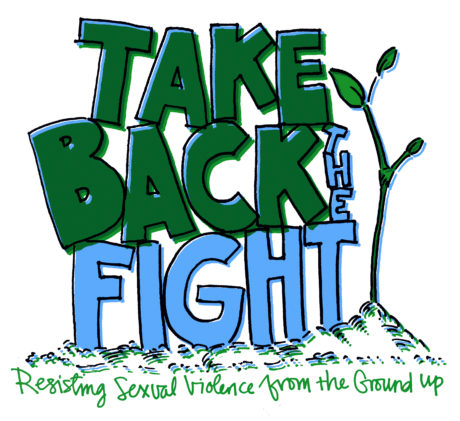Recovery from trauma after sexual assault is often imagined as a personal, internal experience. However, an exclusive focus on individual narratives of victimization and healing can obscure decades of collective, grassroots struggle by and on behalf of sexual assault survivors. Rape is not an isolated experience, but a pervasive form of violence that acts in concert with oppression in the workforce, at home, and in medical and academic institutions–as well as with structural racism, homophobia, transphobia, and capitalism. Likewise, organizing against sexual violence is intimately linked to struggles for liberation in both public and private spheres. The history of organizing against sexual assault and rape helps us to understand feminist resistance to violence as a collective struggle against patriarchy, and sexual and gender violence as a function of state violence.
Interference Archive’s summer 2017 exhibition Take Back the Fight: Resisting Sexual Violence from the Ground Up focuses on organized responses to gender and sexual violence, highlighting the ways individuals and communities have developed creative and powerful grassroots and non-institutional justice and healing practices. A collaboration with Lesbian Herstory Archives, Take Back the Fight narrates intersecting histories of activism by and on behalf of survivors of sexual violence and their communities. The exhibition will coincide with a series of public events in order to collectively engage with the exhibition material, relating the histories presented to ongoing efforts to end and heal from sexual violence.


Archival materials in this exhibition are primarily drawn from the collections of the Interference Archive and Lesbian Herstory Archives. Taken as a whole, these documents reveal both the breadth of organizing against sexual violence and its fragmented, conflictual history, echoes of which continue to be felt in contemporary feminism. The exhibition makes visible some of the fault lines that developed between activists: the pornography debates of the “Sex Wars,” the limits of single-issue organizing, and conflicts and tensions around whether to work within state institutions or develop community-centered justice models.
Archival materials will be complemented by materials created by contemporary artist/activists. These will include a quilt from The Monument Quilt, an evolving collection of stories from survivors of rape and abuse; Bordados (embroideries) by the organization Bordamos Feminicidios based in Mexico created in response to feminicide; and a new installation by intergenerational healing village Harriet’s Apothecary.
This exhibition will situate multiple histories of resistance to sexual violence within a broader narrative of feminist, anti-racist, and queer activism. It will present strategies of resistance, both historical and contemporary, looking at the ways in which activists have sought justice outside of the courts and the criminal justice system. Ultimately, Take Back the Fight will demonstrate the crucial role of grassroots organizing in the struggle against sexual violence and the importance of this activism as a tool of both healing and resistance.
Take Back the Fight is organized by Lani Hanna, Louise Barry, Melissa Forbis, Monica Johnson, and Rachel Corbman. Please contact info@interferencearchive.org with questions about the exhibition, or for class tours.
This exhibition is sponsored, in part, by the Greater New York Arts Development Fund of the New York City Department of Cultural Affairs, administered by Brooklyn Arts Council (BAC).
